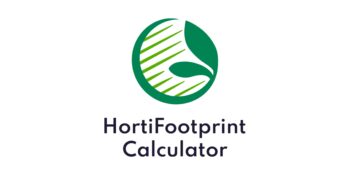Interview with Product Development Manager Martine Holtkamp and Commercial Manager Remco Jansen
Last month, MPS-ECAS sent a message to all MPS-ABC growers with the most important changes in the MPS-ABC certification standard. This way, growers will not be faced with surprises during an audit. As of 1 January 2021, the renewed MPS-ABC certification standard will be effective. The auditors of MPS-ECAS (the sister organisation of MPS that performs independent audits) will start auditing according to the renewed certification standard as of 1 March 2021.
In this article Martine Holtkamp, Product Development Manager at MPS and Remco Jansen, Commercial Manager at MPS, tell more about the most important changes.


Why have the MPS-ABC certification standard and record-keeping environment been updated?
Jansen: “The updated MPS-ABC (version 16) and the accompanying record-keeping environment make it easier and clearer for growers to comply with the requirements of the market and, for example, the Floriculture Sustainability Initiative (FSI). Transparency about environmental performance is becoming increasingly important. In addition, FSI’s ‘Basket of Standards’ is becoming increasingly important for retail, for example.”
MPS has more than 3,500 customers at more than 5,000 production locations worldwide. Many of our customers have been MPS-ABC certified for years. Due to the “new third basket” of FSI with requirements in the field of guaranteed environmental record-keeping and the resulting sustainability requirements, MPS also had to “update” its certification standard. This was started in 2018, supported by various MPS customer panels. Due to the innovations within the certification standard, the online record-keeping environment also needed an update. In 2020, almost all MPS-ABC customers switched to the new environment, whereby user-friendliness and up-to-date record-keeping were central during development. In 2020, there was also communication about new or stricter requirements within the certification standard.
Abou what subject have you had most of the questions in recent weeks?
Jansen: “Many growers think that only MPS has adapted the requirements. We then explain that all record-keeping systems and associated certification standards must meet the same requirements if they are to be recognised by FSI. We also received questions about the IPM plan, additional purchase and certified propagation material.”
An IPM (Integrated Pest Management) Plan must be present. What exactly does this entail?
Holtkamp: “This requirement has been added to the certification standard to increase awareness about substance use, to make substance use more sustainable and to comply with FSI requirements. MPS has made guidelines available on its website for drawing up an IPM plan: this is not a fixed format for what the plan should actually look like, but a guideline so that the requirements can be met. There is a small overlap between the IPM plan required within MPS-ABC and a number of elements that are entered in the crop protection monitor. In the IPM plan, a reference to the crop protection monitor can be given for these elements.”
What if a grower has many different crops? And what about creating images of pests as said in the guidelines?
“An inventory must be made of which pests have the greatest economic impact on the crops,” says Jansen. “Suppose a grower has thirty crops, then it is identified per crop or crop group which pests have the greatest impact. The other steps of the IPM plan are then followed for all unique pests; it then processes how these pests can be recognised and which steps must be taken to eradicate the pest. Within our guidelines of the IPM plan it is a requirement that images are included on which the pests can be recognised. However, this does not mean that a grower has to make images himself, for example, reference can be made to a poster. Incidentally, Glastuinbouw Nederland, in collaboration with WUR, recently launched an IPM tool (in Dutch) where growers can find a lot of information about this subject.”
Record-keeping per application. What has changed compared to record-keeping per period?
Holtkamp: “In order to meet the FSI requirements, we are switching from record-keeping every four weeks to record-keeping per application. Growers enter what they use per application. At the end of each four-week period, customers confirm usage and it is sent to MPS. To make record-keeping per application as easy as possible, it is also possible to record usage per application.
Some customers use yet another system where they already record everything per application. These customers therefore already keep track of this and only have to enter the totals per four weeks in the MPS-ABC record-keeping environment. For growers who use fertiliser containers, recording per application does not mean that they have to record per drop what is used. For example, if a grower creates a 150 kilograms fertiliser container, he simply records it once at that time.”
Has anything changed in MPS-ABC version 16 with regard to the record-keeping of starting material?
Holtkamp: “Growers who participe in MPS-ABC are not obliged to buy certified starting material, but we do encourage this by awarding points. As in the previous version of the MPS-ABC certification standard, growers can now also obtain a maximum of ten points for purchasing certified starting material.
What is new within the record-keeping environment is an extra service that we offer: the propagation material module in which growers can voluntarily record their purchases so that the information is easily accessible during an audit. This optional module is highly appreciated by our customers. The grower may also demonstrate this during an audit by means of invoices and accounting. In this way we also try to make the entire chain transparent. That is the challenge we face as an ornamental plant sector.”
And what about additional purchase?
Jansen: “If a grower buys additional products and wants to sell them under their own MPS-ABC certificate, they must have at least the same MPS-ABC qualification. In this way we want to prevent non-certified products from being marketed as certified. When there is no sale under own certification, no requirements are set for the certification of additional purchase.”
There were also some questions about the fact that a complete accounting must be present during an audit.
Jansen: “This has remained the same as in the previous version of MPS-ABC: complete accounting refers to all purchase and sales invoices for the aforementioned audit period. In the case of digital accounting, access to the accounting programme is sufficient.”
How often do audits and samples take place according to the new standard?
Holtkamp: “An important change is the reliability index. Based on the requirements in the certification standard, we determine how reliable the record-keeping of a participant is. A record-keeping is, for example, reliable if an audit shows that the data hardly or not deviate from the recorded data. Submitting the record-keeping too late or when sampling shows that the use of non-recorded substances will lead to deduction points on the reliability index. Each participant starts with 100 percent reliability. Deduction points do not directly lead to the classification in a lower reliability class. Doing everything according to the book is rewarded with fewer checks. Another advantage is that a company starts with a clean slate every year.”
Jansen: “In principle, this amounts to a company audit once every three years. The audit costs are already included in the annual rate. In addition, sampling is done once a year.”
What happens to the entered data?
Jansen: “What has not changed within the new certification standard is that the grower always remains the owner of the recorded data. Despite the fact that MPS has access to more detailed data with the application record-keeping of crop protection agents and fertilisers, the data is only used in the communication to the individual grower. MPS uses the data to show the performance of the sector, sometimes aimed at a specific region or crop, but the data from a particular grower will never be communicated to other parties.”
How does MPS-ABC differ from other certification standards?
Jansen: “The qualification is calculated over a certain period and is based on usage per square meter per crop. Growers with the same products or product groups under comparable growing conditions are compared with each other; the MPS-ABC qualification is calculated on this basis. MPS-ABC is therefore a certificate based on data. The grower also has insight into how he is doing compared to previous months. This makes it a system that is aimed at improving and making it more sustainable. Unique to MPS is also the personal contact with the growers and the help with all steps of the certification process, if desired at the company itself.”



